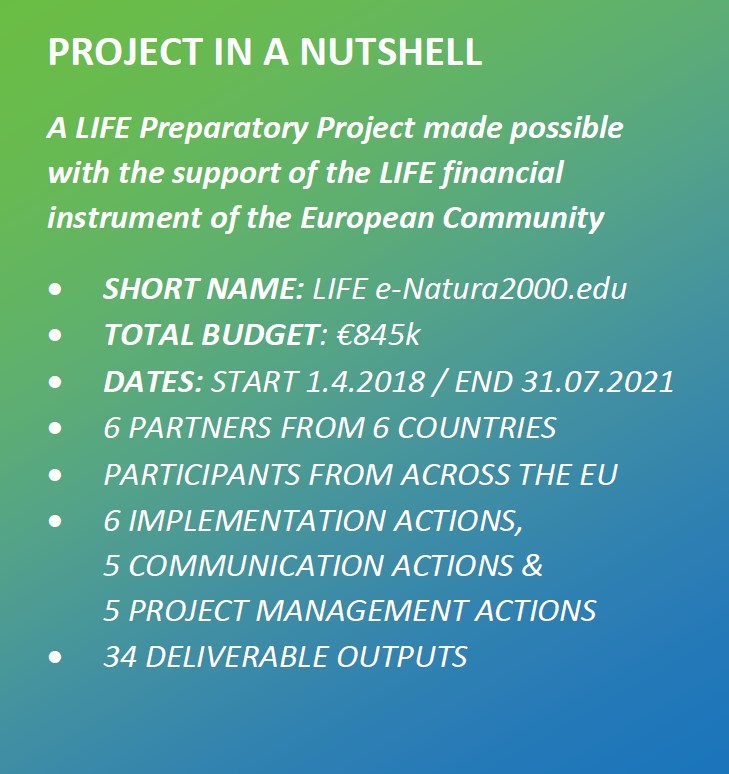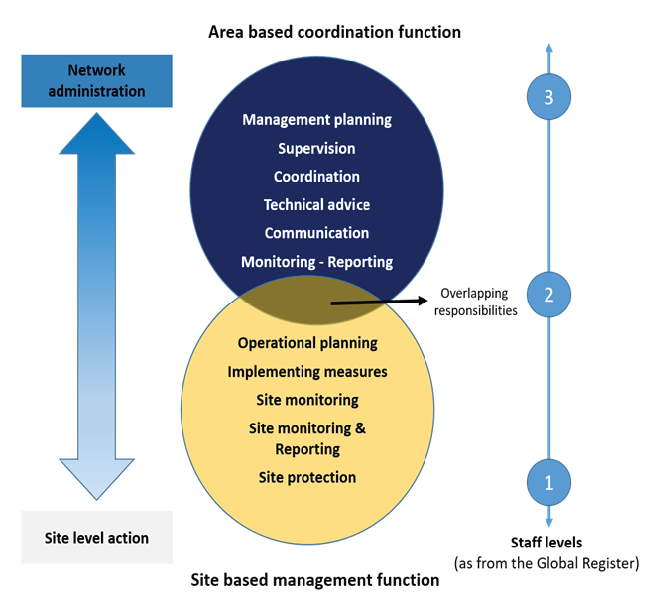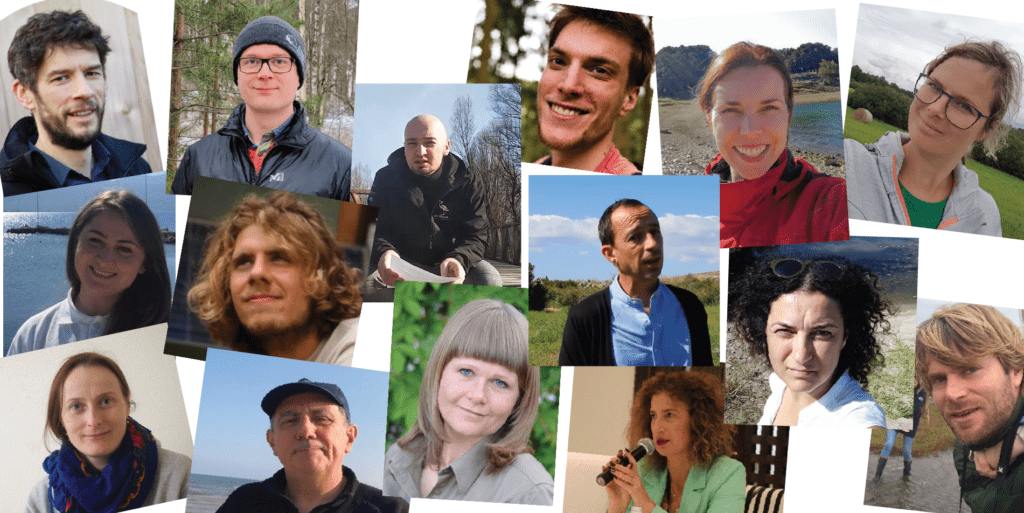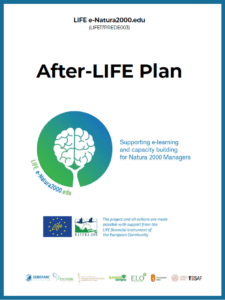LIFE e-Natura2000.edu: After-LIFE Plan
LIFE e-Natura 2000.edu was an innovative three-year project which explored new tools and learning methods to improve knowledge and build practical capacity amongst Natura 2000 managers. This After-LIFE Action Plan describes the project’s approach and specifically the six ambitious and interconnected implementation actions.
About LIFE e-Natura 2000.edu
Taking a competence-based approach, LIFEedu focused on capacity building for Natura 2000 managers and enabled peers to connect and learn about what managers need to know and be able to do. The project analysed training needs and created new tools and approaches to access information and learning about the skills required for effective Natura 2000 management and policy implementation.
The main objectives were:
- To demonstrate the need for and value of competence-based learning opportunities for Natura 2000 professionals through innovative learning methods and formats.
- To have developed and tested new tools for online learning that would improve and increase capacity building opportunities.
- To have created momentum for and demonstrated the value of a larger scale follow-up project.
The project was developed in response to the European Union’s Action Plan for Nature, People and Economy. The Action Plan was adopted following a thorough evaluation of the Birds and Habitats Directives, the so-called ‘Fitness Check’. The evaluation demonstrated that there was and continues to be an urgent need to pick up the pace of Natura 2000 implementation by improving the quality of management practices and the effectiveness of nature conservation objectives and measures.

Why was LIFEedu necessary?
Natura 2000 sites and protected areas need to be proactively managed in ways that address site-specific conservation management needs and objectives, as well as the ambitions of the Natura 2000 network and the effective management of species and habitats of Community interest.
There is no ‘one size fits all’ approach for conservation in Europe.
What do we mean by capacity building?
Capacity building is the process by which individuals (and organisations) obtain, improve, and retain the skills, knowledge, tools, equipment and other resources needed to do their jobs competently. The focus in the LIFEe-Natura2000.edu project was on building Natura 2000 site managers’ capacity to do their work better, smarter and more efficiently.
What do we mean by a competence-based approach?
Competence-based approaches to capacity building are based around proven acquisition of the skills, knowledge and attitude required for effective implementation of tasks and functions.
Within the context of this LIFE Preparatory project, the competence-based approach to capacity building refers to providing learning opportunities that enable Natura 2000 site managers to develop or acquire the skills, knowledge and attitude needed to effectively perform tasks required of them by the Nature Directives.

Competent Natura 2000 managers: Natura 2000 core functions
What do we mean by blended learning?
There is an increasing need to reach greater numbers of nature conservation professionals and to use new technologies and develop online learning. Our blended learning approach enabled participants to learn together in a variety of settings, where they interact with each other, share experiences, apply knowledge gains and work towards practical solutions for their Natura 2000 management challenges. At all times, the focus in the project was on generating maximum impacts at local levels by empowering Natura 2000 managers to improve their management practices.

The participants of the course “Competent Inclusive Communication”, led by the EUROPARC Federation
LIFEedu’s Implementation Actions
LIFEedu involved six integrated implementation actions to create and test new tools and approaches for competence-based capacity building for Natura 2000 managers.
The project aimed to close the gaps between the ‘what’ and ‘how’ of Natura 2000 management, and provided a range of blended learning experiences across three core competence modules, which covered:
- Biodiversity conservation, policy, planning & project management skills – led by the ProPark Foundation in Romania
- How to work & collaborate effectively with local communities and respect cultural traditions – led by FUNGOBE in Spain
- How to communicate confidently about & advocate for Natura 2000 – led by the EUROPARC Federation in English
The range of delivery tools developed and tested within LIFEedu included:
- Webinars
- Demonstration videos
- Filmed ‘master class’ tutorials
- Workshops
- A ‘Natura 2000 in Practice’ Summer school
- New smartphone app – ‘virtual (twinning) hub’
- Practical assignments designed to:
- Analyse best practices to understand why they work;
- Apply learning & replicate where useful
- Think through problems to develop workable solutions
Evaluating experience
Based on the experience of the participants and how they applied their learning in practical ways, the project was able to gather evidence about what capacity gains participants felt they had achieved and would be, as a result of the project, able to adapt and apply with confidence.
Future plans
The LIFEe-Natura2000.edu project holds valuable lessons for all engaged in protecting Europe’s nature.
The project has demonstrated that:
There are common needs and competence-based learning opportunities specifically required for effective nature management in a variety of settings and operating contexts.
In future, the aim is to increase that potential and develop new approaches for individual and organisational capacity building, required to meet the major challenges impacting Europe’s nature in the 21st century. This involves investing in professional capacity building programmes to make sure that our current and future nature management professionals and their organisations have the specific competencies they need to do their work and protect our natural world.
To get more details and see the legacy and main outcomes of the LIFEedu project from different perspectives, download the full version of the document here: LIFEe-Natura2000.edu: After-LIFE Plan
